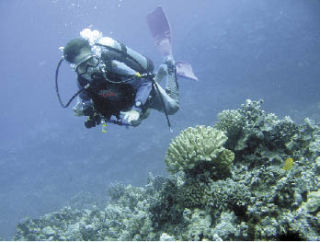What started out as a snorkeling expedition with his family has led 12-year-old Philip Lampkin to the highest level scuba diving has to offer someone his age – Junior Master Scuba Diver.
“I was thinking how cool it would be to see the fish up close,” Lampkin said.
That thought led the ambitious Enumclaw youth on an underwater odyssey with the final piece – a series of rescue dive scenarios – coming in Hawaii Jan. 7 – his birthday.
Philip would have preferred to have the title in his hand earlier, but he had to be 12.
In doing so, Philip became the second person his age in the United States to become a master diver. He is the 79th person in the world, and the youngest in the state of Washington to go through the rigorous training.
“It’s a really remarkable accomplishment when you look at the course work,” said his father Phil. “It’s really not 12-year-old stuff. It’s the highest non-professional certification he can do at this age.”
Professional Association of Diving Instructors, the world’s leading scuba diving training organization, statistics note that in 2007 the median age for certification, among males, was 30.
The home-schooled student, who also attends White River School District’s Choice program and maintains a 4.0 grade-point average, began the quest in 2007. He and had to earn five individual certifications, plus pass advanced open water diving, emergency medical training, underwater navigation, rescue diving and perform a minimum 50 dives.
“There is an element of risk involved,” Phil said, which is why the training is so intensive. Most diving accidents are caused by diver error – safety is stressed.
At 15, Philip can drop the “junior,” and will also be allowed to do “the more dangerous, cool stuff” like cave exploring.
He has to wait until he’s 18 years old to become a professional diver.
“It’s hard to get,” Phil said. “Less than 2 percent of the people that become initially certified ever make this level.”
“It was a lot of work and I really enjoyed it a lot,” said Philip, who used his scuba background to do some double duty, earning him Boy Scout badges as well.
He said cold water presents the hardest diving. That’s one of the reasons he chose Hawaii for his final test. There he could count on clear water and good weather.
“The weather’s against you and with dry suit it limits you,” he said of the Puget Sound area.
But Hawaii is his second home. Philip’s favorite place to dive is off the south Kona Coast in Hawaii, where there’s a giant coral wall.
Philip’s passion became the family’s too. His father, mother and younger brother are all on board.
While he waits to become eligible for the next level, he has plans. He’s eyeing a possible future in marine biology. And, if he could dive anywhere in the world, he’d love to go to Fiji, which is reported to have the most species of fish and diverse underwater plant life.
Reach Brenda Sexton at bsexton@courierherald.com or 360-802-8206.



